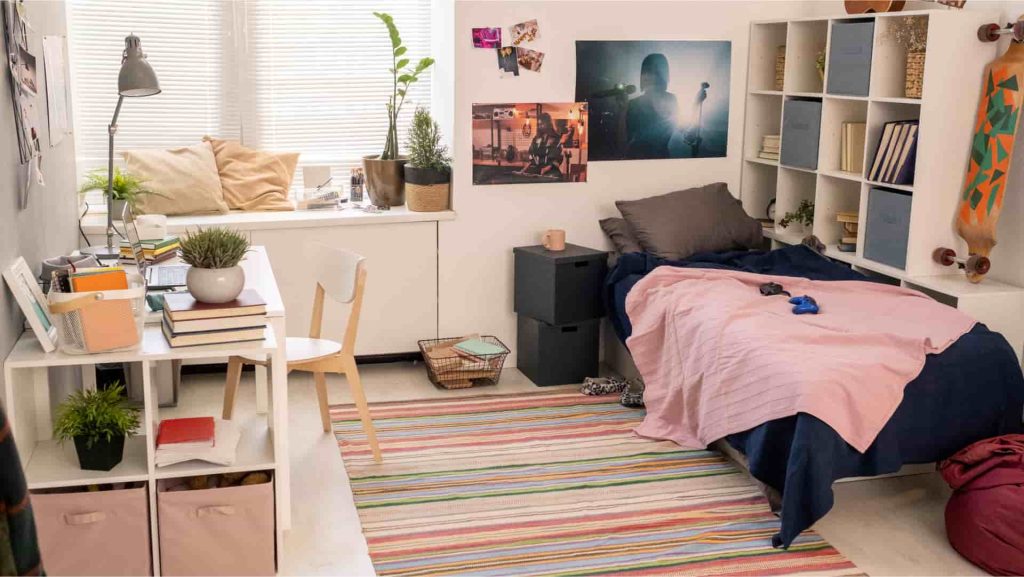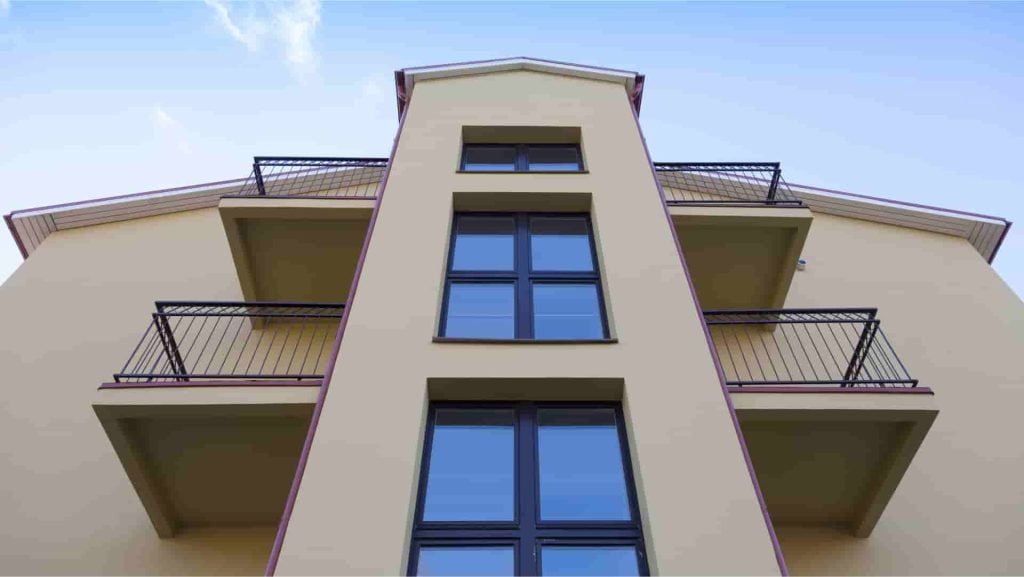
Arriving in Berlin with a suitcase full of dreams and a tight budget, I remember feeling overwhelmed by the city’s pulsating energy and the daunting task of finding a place to call home. Here I’ll share my personal tips, tricks and advice I picked up along the way while navigating the student accommodation in Berlin.
From the initial shock of sky-high rents to the joy of discovering hidden gems in quaint neighborhoods, there is something for everyone here.
I am taking this opportunity to recount my late-night searches on countless housing websites, the nervous excitement of attending viewings, and the camaraderie found in shared apartments.
This isn’t just a random guide, but take it as older sister advice on how I found my footing in this dynamic city, learned to balance my finances, and ultimately carved out a little nook in Berlin that felt like mine.
Understanding Berlin’s Housing Market for Students
Currently, the market is characterized by high demand and limited supply, especially in areas popular with students. This dynamic has led to a competitive environment where finding affordable accommodation requires diligence and sometimes, a bit of luck.

Students often flock to neighborhoods like Kreuzberg, Friedrichshain, and Neukölln, known for their vibrant cultural scenes and relatively more affordable living options. However, even in these areas, prices have been steadily rising, reflecting the overall trend in the city.
Make sure to read: Thriving in a New Career Abroad: My Story of Working in Germany
Average Rent Prices in Different Areas in Berlin
| Area | Popularity Factor(s) | Average Rent Price |
| Mitte | Central location, vibrant nightlife, historical significance | €900 – €1,300 |
| Kreuzberg | Trendy, multicultural, artsy, affordable for Berlin | €700 – €900 |
| Friedrichshain | Young and lively, nightlife district, close to universities | €650 – €850 |
| Prenzlauer Berg | Family-friendly, green spaces, hipster cafes, good schools | €800 – €1,100 |
| Neukölln | Up-and-coming, diverse, alternative scene, affordable | €550 – €750 |
| Schöneberg | LGBTQ+ friendly, vibrant cafes and bars, close to Tiergarten park | €750 – €950 |
| Wedding | Multicultural, affordable, artistic community, parks | €600 – €800 |
| Moabit | Close to universities, quiet neighborhoods, green spaces | €650 – €800 |
Factors Influencing Rent Prices in Berlin
- Location: Proximity to universities, public transport, and city centers heavily impacts rent prices.
- Amenities: Modern facilities like in-suite laundry, balconies, or a gym can increase the rent.
- Size and Condition: Larger and newly renovated apartments command higher rents.
- Market Demand: High demand in popular areas leads to increased competition and higher rents.
- Lease Terms: Shorter lease terms often result in higher monthly rent.
Types of Student Accommodations Available in Berlin
There are several types of student accommodations available in Berlin to suit the needs and demands of all kinds of students. Ranging shared rooms to flats to studio apartments to bigger apartments. All you gotta do is choose your pick and the rest is sorted.
| Accommodation Type | Description | Pros | Cons |
| University Dorms | These are accommodations provided by universities, typically located on or near campus. | Affordable, convenient for campus life, utilities often included, great for meeting fellow students. | Limited privacy, strict rules, often a lottery system for allocation. |
| Private Rentals | Apartments or houses rented directly from a landlord. | More privacy, freedom to choose location, potential for a “home” feel. | Higher cost, utility bills usually not included, responsibility for maintenance. |
| Shared Apartments (WG – Wohngemeinschaft) | Apartments where you share common spaces like the kitchen and living room with other tenants. | More affordable, social environment, shared responsibilities. | Less privacy, potential for conflicts with roommates, shared responsibility for bills. |
| Hostels | Short-term, budget-friendly accommodations offering private or shared rooms. | Very affordable, flexible, good for short stays or while searching for long-term housing. | Limited privacy, less secure, not ideal for long-term stays. |
Tips on What Students Should Look for in Each Type of Accommodation
- University Dorms: Focus on proximity to your faculty buildings, availability of essential amenities, and overall community vibe.

- Private Rentals: Ensure the location is convenient for both studies and social life, check the condition of the property, and clarify the terms of the lease.
- Shared Apartments (WG): Assess the compatibility with potential roommates, understand the shared responsibilities, and consider the layout for privacy.
- Hostels: Look for hostels with good security, cleanliness, and reviews from other students for short-term stays.
Also read: 5 Incredible German Cities to Look Out For: A Journey From Berlin to Frankfurt
Budgeting for Student Accommodation in Berlin
To start, it’s essential to consider both your monthly income and expenses. Rent should ideally not exceed 30-40% of your monthly budget. This percentage is a guideline to ensure that you can comfortably afford other expenses like food, transportation, and leisure activities.
When setting a budget for rent and utilities, factor in the fluctuating costs of heating, electricity, and water, which can vary seasonally. In Berlin, utilities can sometimes be a significant portion of your monthly housing costs, so it’s wise to ask for an estimate of these expenses when considering a rental. Additionally, internet and possibly a TV license fee (Rundfunkbeitrag) are also common utilities that need to be budgeted for.

Additional Costs to Consider When Looking for Student Accommodation
- Security Deposits: Often equivalent to two to three months’ rent, this is refundable at the end of your tenancy, assuming no damages.
- Agency Fees: If you use a rental agent, fees can apply, typically a percentage of the annual rent.
- Furniture and Household Items: Consider the cost of furnishing if moving into an unfurnished space.
- Moving Costs: If moving from afar, factor in the cost of transportation of your belongings.
- Insurance: Renters insurance can protect your belongings and is worth considering.
- Service Charges: These are monthly fees for building maintenance and are sometimes not included in the rent.
Streamlining the Search Process for Student Accommodation in Berlin
Step 1:
Before you start searching, you have to the define your criteria. List your must-haves, like location, budget, and type of accommodation.
Step 2:
Use websites and apps dedicated to student housing in Berlin such as WG-Gesucht, Urban Ground, ImmobilienScout24, and Kleinanzeigen to mark out all possible options suitable for you.

Step 3:
Check university resources as some of them offer their own housing resources or have partnerships with local student dorms.
Step 4:
Prepare Your Documents: Have your ID, proof of income or scholarship, student status, and possibly a Schufa (credit report) ready.
Step 5:
Contact landlords or current tenants to arrange viewings. Be proactive and responsive and always deal with your landlord with respect.
Step 6:
In the competitive Berlin market, if you find a suitable place, be prepared to make a decision quickly, otherwise, it will be difficult for you to find an apartment.
Step 7:
Carefully read the rental agreement before signing. Look for details about the lease term, deposit, and notice period.
Step 8:
Once you’ve moved in, don’t forget to register your new address (Anmeldung) at the local residents’ registration office.
We think you’ll love this: What Did Renting My First Apartment in Germany Look Like
Why Should You Start Looking for an Apartment Early?
Starting your search for accommodation in Berlin should be done as early as possible. The market moves quickly, and desirable places get snapped up fast. Being early in your search gives you a broader range of options and less competition.
It’s also important to be flexible in your search. You might have to compromise on certain aspects, like location or apartment size, to find something within your budget. Flexibility and a willingness to adjust your preferences based on availability and affordability will significantly ease your search process.

Overview of Tenant Rights When Looking for Student Accommodation in Berlin
One of the first things you need to research and learn about are your rights as students in Berlin. I have listed the basic rights you need to consider, but remember, each of these have its own nuances:
- Right to Privacy: Landlords must give notice before entering the rented property.
- Protection Against Unjust Eviction: Tenants have strong protection against eviction and cannot be asked to leave without a valid reason.
- Rental Increase Restrictions: There are legal limits on how much and how often a landlord can increase the rent.
- Maintenance and Repairs: Landlords are responsible for major repairs and maintaining the property in a habitable condition.
- Deposit Protection: Security deposits are limited by law and must be returned within a reasonable period after the lease ends, minus any legitimate charges for damages.
Common Legal Issues and How to Deal with Them
Students often face issues related to rental contracts and deposit returns. It’s vital to thoroughly read and understand the rental contract before signing it. Pay attention to clauses about the duration of the lease, termination conditions, and rules about subletting.
For deposit returns, document the condition of the apartment when you move in and again when moving out. This documentation can be crucial if there are disputes over damages.
Your recommended post for the week: 15 Things Nobody Tells You About Working in Germany
Where to Seek Legal Help
If you need legal assistance, you can seek help from a Mieterverein (Tenants’ Association) or a Rechtsberatung (Legal Advice Center), often available at universities.
These organizations can provide advice and support on various housing-related legal issues. Additionally, some lawyers in Germany specialize in tenancy law and can be consulted for more complex legal matters.

Finding a Home in Berlin: The Student Edition
This blog, much like my search for accommodation, started with uncertainty and is ending with a heart full of gratitude and a suitcase of lessons. To the students stepping into this city of dreams and challenges, know that each apartment hunt, each viewing, and each lease you sign is more than just securing a roof over your head—it’s about weaving your own unique Berlin story.
Your journey will be sprinkled with moments of doubt, exhilaration, and learning. You’ll find strength you never knew you had and make connections that go beyond mere tenancy agreements.
Here’s to finding a home in the city! You got this.




